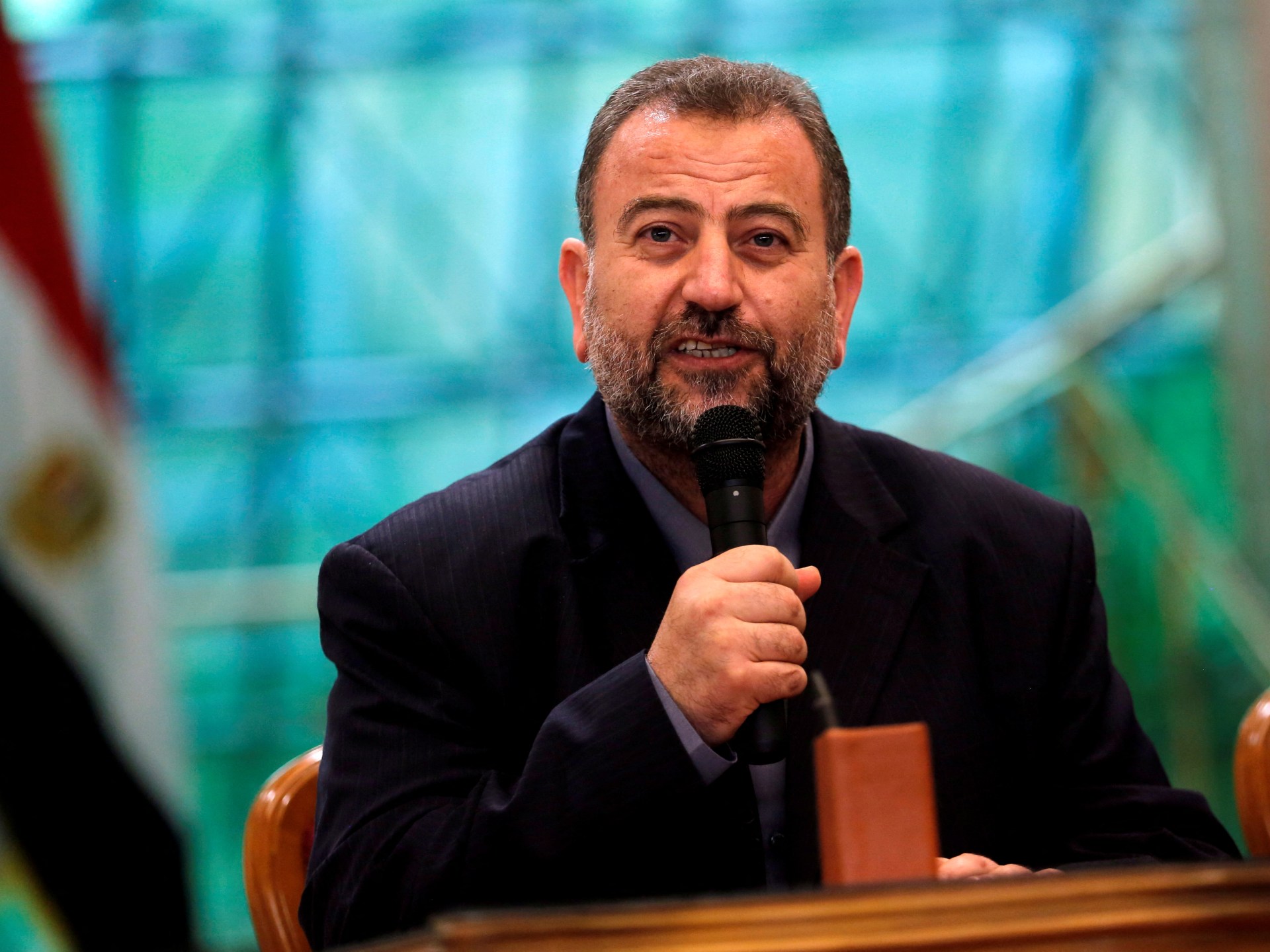Leaders at the three top universities in the United States have faced calls to resign after their testimony before a congressional hearing on campus anti-Semitism set off a firestorm of criticism.
On Tuesday, Harvard University announced it would keep political scientist Claudine Gay as its president, after her counterpart at the University of Pennsylvania, Elizabeth Magill, stepped down over the weekend.
Gay, Magill and Sally Kornbluth, the president of the Massachusetts Institute of Technology (MIT), have all faced a backlash since their joint appearance before Congress on December 6, where they were asked how they would address anti-Semitism at their universities.
Republican Representative Elise Stefanik grilled the academic leaders for offering evasive answers about whether calls for the “genocide of Jews” violated their schools’ codes of conduct.
“Calling for the genocide of Jews is dependent on the context?” Stefanik said incredulously in response to their answers. “That is not bullying or harassment? This is the easiest question to answer yes.”
Fears over anti-Semitism and other forms of hate have spiked since the start of the Israeli war in Gaza on October 7, which sparked widespread campus protests in the US.
As pro-Israel and pro-Palestinian protesters clashed, university leaders faced scrutiny over what speech is protected on school grounds – and what, if anything, should be limited.
Let’s take a look at the congressional hearing and why the presidents’ testimonies have drawn bipartisan backlash, including from the White House:
Why was the hearing held?
Jewish advocacy group Anti-Defamation League and some other similar groups have warned that anti-Semitism is on the rise on US campuses, particularly since the start of the Gaza war. The staunchly pro-Israel group, however, has been accused of conflating the criticism of Israel with anti-Semitism.
And the Department of Education has opened investigations into more than a dozen universities since the war began, citing possible “discrimination involving shared ancestry” – an umbrella term that covers both anti-Semitism and Islamophobia.
Politicians, particularly on the right, have pointed to those reports as evidence that the liberal atmosphere on college campuses has gone too far.
Pro-Israel groups have deemed student chanting of the slogan, “from the river to the sea”, to be pro-Hamas, but analysts say the term has more complex roots. They say the phrase is an expression of the Palestinian desire for freedom from oppression across the historical land of Palestine.
On December 6, the House Committee on Education and Labor held a hearing to address concerns about campus anti-Semitism, calling on Gay, Magill and Kornbluth to speak.
“Today, each of you will have a chance to answer to and atone for the many specific instances of vitriolic, hate-filled anti-Semitism on your respective campuses,” Republican Representative Virginia Foxx told the university presidents.
She added that the tense atmosphere denies students “the safe learning environment that they are due”.
What happened at the hearing?
The three university presidents testified at the five-hour-long hearing, addressing how they balanced free speech with concerns for campus safety.
But it was their interaction with Stefanik towards the end of the hearing that fuelled viral outrage.
Stefanik pressed the three leaders about whether calling for the genocide of Jews would be considered harassment, insisting on direct answers. In one such exchange, she posed a hypothetical question to Magill: “Does calling for the genocide of Jews violate Penn’s rules or code of conduct, yes or no?”
Magill said it would depend on the context. “If the speech turns into conduct, it can be harassment, yes.”
“I am asking, specifically, calling for the genocide of Jews, does that constitute bullying or harassment?” Stefanik said.
“If it is directed and severe, pervasive, it is harassment,” Magill answered.
“So the answer is yes,” Stefanik said, appearing exasperated.
All three presidents refused to issue blanket statements that calling for genocide would constitute conduct violations. At one point, Gay said terms like “intifada” – the Arabic word for “uprising” – were “personally abhorrent”, but she underscored her support for “free expression, even of views that are objectionable”.
Why did the testimonies spark controversy?
Much of the outrage stemmed from the fact that the university presidents did not unequivocally condemn calls for genocide, thereby appearing tolerant of hate speech.
Tom Ginsburg, a professor of law at the University of Chicago, said the presidents came across as “lawyered”, “defensive” and perhaps “out of touch”.
However, he said, “in substance, it’s not clear that anything any of them said was wrong or inaccurate”. The presidents were simply reflecting the broad protections for free speech afforded under the First Amendment of the US Constitution.
“We live in a country where you can call for the genocide of groups and, if you’re not imminently going to cause them harm, that’s legal,” he explained.
“Go on to Twitter. It happens all the time. So [the presidents] were trying to talk about their policies, obviously, in a way which preserved their ability to say that they were applying the First Amendment.”
What kind of speech is limited on US campuses?
Zach Greenberg, a First Amendment lawyer with the Foundation for Individual Rights and Expression (FIRE) advocacy group, explained that the university presidents had to navigate a fine legal distinction in their testimonies.
The US Constitution includes sweeping protections for “political speech”, which can comprise, in extreme cases, discussions or even the advocacy of violence. But it does not protect speech that veers into threats and harassment.
The distinction is that unprotected speech represents a “serious intent to commit unlawful violence and becomes a pattern of severe, pervasive, offensive conduct that detracts a student from having an education”, Greenberg explained.
But private universities, like Harvard and MIT, have the power to go further in restricting speech, he added. They have the right “to set their own policies and determine what standard of free speech they’re going to give to their students”.
Still, free speech is the norm on most US campuses, which have traditionally been hotbeds for political activism, Greenberg said.
“The vast majority of private schools, especially liberal arts universities and Ivy League schools like your Harvard, Yale or MIT, they promise students robust free speech rights, consistent with the First Amendment.”
“The University of Pennsylvania, for example, and its policies, basically say, ‘We are guided by the US Constitution. This is a standard we’re going to apply when determining what right students have on campus.’ So students at these universities are led to believe that the limits of their rights would be those of the First Amendment.”
What has been the public reaction?
All three presidents have faced intense criticism, with some students, alumni and activists calling for their resignations.
Dozens of US politicians, including high-level Democrats, have also condemned the presidents’ words.
“It’s unbelievable that this needs to be said: Calls for genocide are monstrous and antithetical to everything we represent as a country. Any statements that advocate for the systematic murder of Jews are dangerous and revolting – and we should all stand firmly against them,” White House spokesperson Andrew Bates said in a statement last week.
Donors have also threatened to stop funding the universities. Billionaire hedge fund manager Bill Ackman denounced Gay in particular, saying in an open letter that she has done more damage to Harvard’s reputation than anyone in the university’s history. He also suggested she was hired to fulfil diversity criteria.
Still, some observers have leapt to Gay’s defence. More than 700 Harvard faculty members have signed a petition urging the school’s board to resist calls for her removal, a call that was ultimately successful.
What have the school presidents said since the hearing?
Gay has apologised for her remarks in the hearings.
She told the Harvard Crimson newspaper on Thursday: “What I should have had the presence of mind to do in that moment was return to my guiding truth, which is that calls for violence against our Jewish community – threats to our Jewish students – have no place at Harvard and will never go unchallenged.”
Magill, meanwhile, followed her testimony up with a video statement on the University of Pennsylvania’s website.
“I want to be clear, a call for genocide of Jewish people is threatening – deeply so,” she said. “In my view, it would be harassment or intimidation.”
Did the presidents keep their jobs?
Harvard’s board announced on Tuesday that Gay would remain in her role despite the backlash. MIT’s board also said last week that it stood by Kornbluth. Magill, meanwhile, stepped down from her post amid pressure.
What does the situation spell for the future of free speech at US universities?
Before her resignation as head of the University of Pennsylvania, Magill called on school administrators to “initiate a serious and careful look at our policies”.
Ginsburg, the law professor at the University of Chicago, called her words “maybe the scariest” part of the whole imbroglio. To him, it signalled a possible backslide from the school’s commitment to freedom of speech.
“We have to get rid of ideological constraints on universities, whether those come from inside the university, by politicised departments, or from outside the university – from politicians who want to make hay and get votes out of them,” he said.
Ginsburg added that revising campus rules on free speech could end up silencing “actual discussion of Israel and Palestine policy”.
“It’s a major issue of public policy. We can’t take that off the table just because of some pressure from donors and such,” he said.
Greenberg, the First Amendment lawyer, echoed those concerns, though he hoped the public discussion would prompt schools instead to shore up their free speech protections.
“We are worried that this will create a pushback against free speech and open the door toward more censorship,” he explained.
“If universities are going to water down their free speech policies to punish students for saying, ‘From the river to the sea’, for protesting Israel, for talking about this conflict, that would be a backward step.”

 Movie
Movie 4 months ago
77
4 months ago
77 






![Presidents Day Weekend Car Sales [2021 Edition] Presidents Day Weekend Car Sales [2021 Edition]](https://www.findthebestcarprice.com/wp-content/uploads/Presidents-Day-Weekend-car-sales.jpg)



 English (United States)
English (United States)